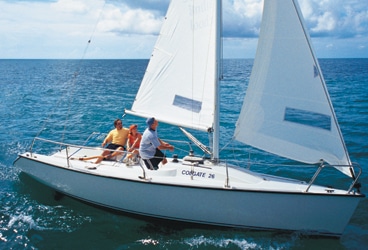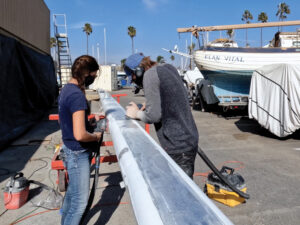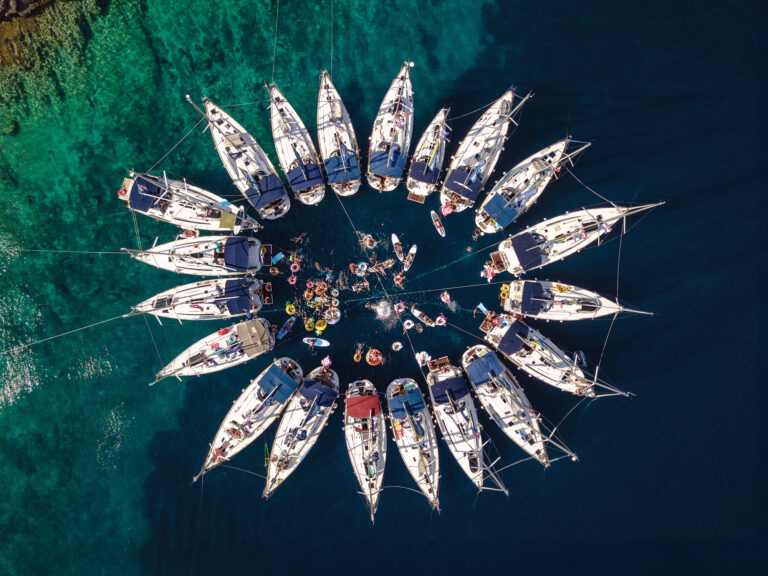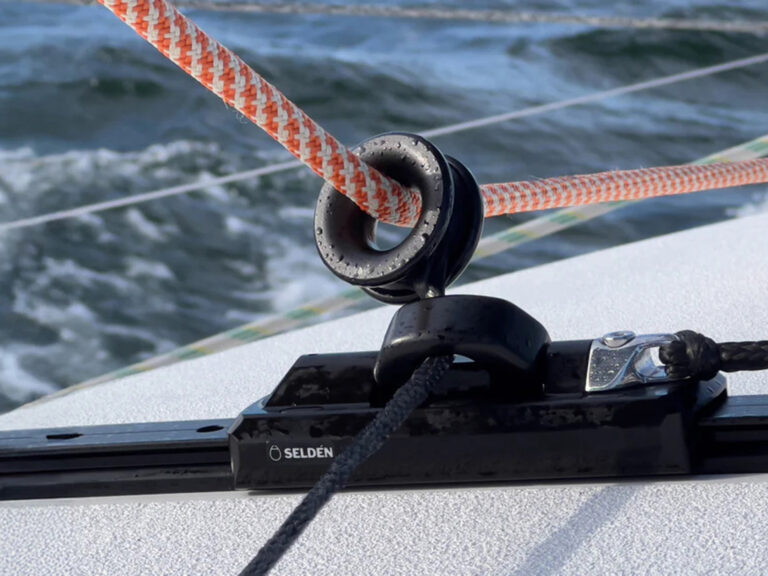
Colgate
1. How are instructors evaluated and trained? What instructor certifications and US Coast Guard licenses do they hold? Your instructor will make or break your learning experience and will ultimately affect whether you want to continue learning how to sail—or not. Instructors should’ve gone through a certification program offered by US Sailing, the American Sailing Association, or the Royal Yachting Association.
2. Does the school offer classroom instruction to reinforce onboard training? This not only shows a level of professionalism but also increases the learning curve by explaining the theories you’ll be covering on the boat before each on-water session.
3. Does the sailing school belong to one of the three major issuers of sailing certification, US Sailing, the ASA, or the RYA? If it does, the school should be following the guidelines set up by these organizations for minimum standards and strive to go beyond these minimums to give you the best learning experience that you’ve ever had.
4. What training materials does the school provide? You should get a dedicated textbook for the course level to study in advance.
5. Does the school offer a range of courses, from basic instruction to advanced opportunities? A wide range of courses that takes you from novice to passagemaker indicates a school’s dedication to teaching sailing and to hiring instructors with a great deal of sailing and teaching experience and knowledge.
6. What kind of boat will you learn on and how well maintained is the school’s fleet? When you’re just starting out, you want to learn on a boat that provides performance, stability, safety, and fun—but also one that allows you to advance to the next level easily. You also want to be sure you learn on boats that are regularly maintained and outfitted for safety.
7. What is the ratio of students per instructor? One instructor to four adult students is normal. More than that dilutes the learning experience.
8. Does the school stand behind its products with a guarantee? If you can’t repeat a course that didn’t live up to your expectations, you want to know why.
9. Does the school tell you what its cancellation and refund policies are before you give it a credit card? There should be transparency. If you were to not show up at the last minute for whatever reason, there’s no way for the school to fill that spot, so expect rules that govern when you can cancel a course and get a refund and transfer to a different date.
10. Can you get the names, emails, and phone numbers for graduates in your area so that you can learn about their experience with the school you have in mind? If the school publishes testimonials on its website, does it give the students’ full names, city, and state? If not, are they really true graduates talking, or is this just marketing hype? Sure, you’ll probably get the names of graduates who had a stellar experience, but you’ll cut through the chaff if you ask them the questions covered above.
Doris and Steve Colgate are the co-founders of Offshore Sailing School (www.offshoresailing.com).
Want to read more about choosing a sailing school? Check out Jen Brett’s articles Choosing a Sailing School and Let’s Go Sailing!








